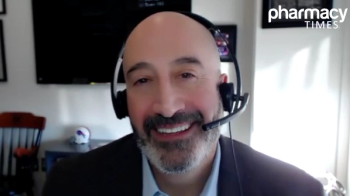
- December 2013 Heart Health
- Volume 79
- Issue 12
Self-Care for Heart Health
OTC case studies involving vitamin E supplementation, omega-3 fatty acid supplementation, smoking cessation, and weight-loss medication.
Case 1: Vitamin E Supplementation
LR is a 58-year-old female who comes to the pharmacy enquiring about vitamins that can reduce her risk of heart disease. She has no symptoms or significant cardiac history, except that her mother has atrial fibrillation and her father has high cholesterol, hypertension, and heart failure. She would like to start taking a once-daily vitamin E supplement since she remembers hearing a few years ago that vitamin E is particularly good for promoting heart health. She has no known allergies to medications and reports taking a daily women’s multivitamin, omeprazole 40 mg once daily for gastroesophageal reflux disease, and ibuprofen as needed for headaches and pains. What recommendations can you give LR on the use of vitamin E for heart health?
Answer:
It is well-recognized that Americans spend billions of dollars annually on vitamins, dietary supplements, and nutritional aids on the premise of promoting good health and preventing disease. Most recently, an expert panel of the US Preventative Services Task force concluded that there is insufficient evidence to support use of single or paired vitamin and/or mineral supplementation to reduce the risk of cancer or heart disease.1 Specifically, this committee identified that there is insufficient evidence to determine whether vitamins and minerals alone or in combination can reduce the risk of cardiovascular disease or cancer, with the exception of beta-carotene (vitamin A) and vitamin E, for which clinical data indicate they are either not effective (vitamin E) or potentially harmful (vitamin A) in preventing heart disease or cancer, respectively.1
In the case of LR, considering she is already taking a daily multivitamin, reiterate the importance of adhering to the recommended dietary allowances of nutrients listed on the label and remind her that increasing supplementation of a specific nutrient doesn’t always equate to better health. Further, remind her that the best way to achieve the health benefits of vitamins and nutrients is through consumption of a well-balanced diet that is low in fat and sodium and high in fiber.
Case 2: Omega-3 Fatty Acid Supplementation
TJ is a 45-year-old male who is seeking information on omega-3 fatty acids. He’s heard and seen a lot of news extolling the benefits of the omega-3s for heart health is and wondering if supplementation is a natural way for him to lower his cholesterol without medications. TJ has a sulfa allergy and is currently taking atorvastatin 40 mg once daily for dyslipidemia, lisinopril 40 mg daily and chlorthalidone 50 mg daily for hypertension, and escitalopram 10 mg daily for depression. What can you recommend for TJ? What information can you give him about the benefits of dietary intake and supplementation with omega-3 fatty acids?
Answer:
Omega-3 fatty acids have received much attention in the press and been the subject of several large-scale clinical research studies on heart health and cholesterol reduction in recent years. The major dietary forms of this type of fatty acid include docosahexaenoic acid (DHA), eicosapentaenoic acid (EPA), and alpha-linolenic acid (ALA). DHA and EPA are primarily found in animal products, particularly from dietary seafood sources (oily fish and shellfish) and from fish oil capsules. ALA is more often derived from vegetable oils and dietary sources such as flax seeds, walnuts, and dairy products. Omega-3 fatty acids may reduce triglycerides and blood pressure and improve immune function, among many other potential health benefits. Consuming 1 or 2 servings of fish per week may additionally reduce the risk of heart disease, particularly sudden cardiac death.
Much like the use of vitamin and mineral supplements for promoting health and wellness, it is generally recognized that dietary intake of the omega-3 fatty acids has been shown to have a benefit in promoting cardiac wellness, while the benefits of omega-3 supplements to the diet remain less certain. The Dietary Guidelines for Americans, 2010, has been updated to include a recommendation that most American adults should consume 8 or more ounces of seafood per week to ensure adequate intake of these heart-healthy nutrients; pregnant women and children usually require less than this amount.2 A recent study published in 2012 found that supplementing EPA and DHA may not have the same protective effect on heart function as food sources of these nutrients.3 For TJ, counsel him on the importance of dietary consumption and on foods rich in omega-3s for heart health promotion.
Case 3: Smoking Cessation
SA is a 57-year-old businessman who comes to the pharmacy seeking a recommendation for smoking cessation. Last month, he had a myocardial infarction (MI) and received extensive counseling prior to discharge from the hospital on the need to quit smoking to reduce his risk of a subsequent MI. He is interested in purchasing an OTC smoking cessation aid as instructed by his physician; however, he would like a recommendation for a specific dosage form to purchase. He reports smoking approximately half a pack of cigarettes per day. He smokes throughout the day, most often on breaks at work, in the evening when out with friends, and while traveling. He smokes his first cigarette of the day after his coffee, approximately 30 minutes after waking. He has no known medication allergies but is taking multiple new medications, including aspirin, clopidogrel, metoprolol, atorvastatin, and ramipril. He would prefer to not have to take another medication by mouth. What OTC remedy or remedies can you recommend to SA to aid his quit attempt?
Answer:
Smoking cessation is a critical intervention for reducing the risk of heart disease, stroke, and MI, particularly in a patient who recently experienced a heart attack. Based on his smoking habits, patterns of nicotine use, number of cigarettes smoked per day (approximately 10) and coexisting medical problems, SA is clearly a candidate for nicotine replacement therapy. Therapies approved for smoking cessation include OTC nicotine gums, lozenges, and transdermal patches, along with prescription-only nicotine inhalers, nasal sprays, varenicline, and bupropion; SA is most likely to prefer using transdermal patches over other dosage forms.4 Based on his nicotine use, consider recommending a 14-mg/day patch to start, with a plan to taper to 7 mg after 6 weeks of use.4
Counsel SA on the appropriate use of the transdermal patch and the potential for side effects, most notably abnormal dreams, headache, or insomnia. If these become bothersome, removing the patch at bedtime and replacing it first thing in the morning may be preferred.4 Further, recommend he follow up with local counseling services or use a toll-free service (1-800-QUIT-NOW), if interested, to improve his success.
Case 4: Weight-Loss Medication
KD is a 63-year-old obese female who is requesting advice on an OTC weight-loss medication. KD has recently been diagnosed with high blood pressure and started on medications to try to control it. Based on the advice of her physician, she would like to try to lose weight in an attempt to improve her cardiac health. She enrolled herself in a diet/lifestyle modification program; however, she’s seen commercials for drugs that she believes may help augment her attempted dietary modification. She has no known allergies to medication and reports taking hydrochlorothiazide 25 mg daily and amlodipine 10 mg daily. What OTC product and self-care advice can you give KD?
Answer:
Obesity and coronary heart disease go hand in hand, as increased body mass can influence blood pressure, blood glucose control, and cholesterol. Weight loss is not a condition for self-treatment that results in an instantaneous fix, but rather a condition that requires a multifaceted life-long approach to maintaining a healthy weight and lifestyle. In KD’s case, her decision to join a weight-loss and dietary modification support group is a prudent, but sometimes costly, approach and initial step to help her achieve her weight-loss goals. Dietary modification, including reducing daily caloric intake, using fat or sugar substitutes, and altering the frequency of meals, are part of an effective weight-loss strategy.5 Further, as long as medically cleared for participation, incorporation of routine physical exercise may further help with weight reduction.
Although numerous herbal products have been touted for weight loss, the use of most of these products is not supported by validated claims for this indication and may increase the risk of adverse cardiac outcomes. If KD remains motivated to try and OTC agent, recommend that she consider the use of orlistat (Alli), an agent that may reduce dietary fat absorption and that has been associated with a modest weight loss. This medication is taken at a dose of 60 mg 3 times daily before meals containing fat. Side effects may include reduced fat-soluble vitamin absorption and gastrointestinal effects, including flatulence, loose stools, and fecal incontinence.5
If KD remains motivated to pursue a pharmacologic agent to support her weight loss, encourage her to speak with her primary care provider for additional information on prescription-only products.
Dr. Bridgeman is an internal medicine clinical pharmacist in New Brunswick, New Jersey, and clinical assistant professor, Ernest Mario School of Pharmacy, Rutgers University. Dr. Mansukhani is a clinical pharmacist in South Plainfield, New Jersey, and clinical assistant professor, Ernest Mario School of Pharmacy, Rutgers University.
References
- Fortmann SP, Burda BU, Senger CA, Lim JS, Whitlock EP. Vitamin and mineral supplements in the primary prevention of cardiovascular disease and cancer: an updated systematic evidence review for the US Preventive Services Task Force [published online November 12, 2013]. Ann Intern Med. doi:10.7326/0003-4819-159-12-201312170-00729.
- US Department of Agriculture, US Department of Health and Human Services. Dietary Guidelines for Americans, 2010. 7th ed. Washington, DC: US Government Printing Office; December 2010. www.cnpp.usda.gov/dgas2010-policydocument.htm. Accessed November 18, 2013.
- Kwak SM, Myung SK, Lee YJ, Seo HG. Efficacy of omega-3 fatty acid supplements (eicosapentaenoic acid and docosahexaenoic acid) in the secondary prevention of cardiovascular disease: a meta-analysis of randomized, double-blind, placebo-controlled trials. Arch Intern Med. 2012;172:686-694.
- Hudmon KS, Kroon LA, Corelli RL. Smoking cessation. In: Krinsky DL, Berardi RR, Ferreri SP, et al, eds. Handbook of Nonprescription Drugs: An Interactive Approach to Self-Care. 17th ed. Washington, DC: American Pharmacists Association; 2011.
- Miller SJ, Bartels CL. Overweight and obesity. In: Krinsky DL, Berardi RR, Ferreri SP, et al, eds. Handbook of Nonprescription Drugs: An Interactive Approach to Self-Care. 17th ed. Washington, DC: American Pharmacists Association; 2011.
Articles in this issue
about 12 years ago
Switching to Sippy Cups May Not Reduce Weight Gain in Toddlersabout 12 years ago
Can You Read These Rxs?about 12 years ago
Fast Food Calorie Labels May Not Improve Eating Habitsabout 12 years ago
National Nutrition Survey Respondents Underreport Caloric Intakeabout 12 years ago
Your Compounding Questions Answeredabout 12 years ago
Case Studiesabout 12 years ago
Health App Wrapabout 12 years ago
Regular Activities May Improve Heart Health in Older Adultsabout 12 years ago
Metformin May Not Benefit Non-Diabetic Heart Patientsabout 12 years ago
Obesity Without Metabolic Syndrome Still Increases Heart Disease RiskNewsletter
Stay informed on drug updates, treatment guidelines, and pharmacy practice trends—subscribe to Pharmacy Times for weekly clinical insights.


























